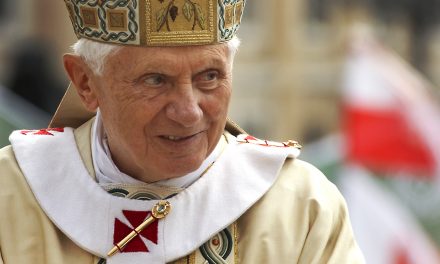Even a cursory glance at other reviews for this book reveal that that it is destined to become a classic of historical moral theology. And despite his recently making calls for theological ethicists to write in more creative ways that are accessible outside of the academy, few could criticize the striking depth and breadth of scholarship that Keenan puts on full-display for all to see. In a style that has become his trademark, and one which many of us wish was not so rare, Keenan’s writing refuses to sacrifice rigor for accessibility.
The book apparently grew out of his popular doctoral seminar at Boston College, and anyone who reads it can therefore get a window into what it might be like to have taken his course. Steeped in aspects of the tradition not traditionally given much coverage, Keenan goes into great detail about trends and persons that many of us may have missed–and gives us ample footnotes to follow for more details. Of particular value is his discussion of the manualist tradition of the early part of the century and how he sees that giving way to the pre-Vatican II era. And perhaps not surprisingly given his heroic commitment to do theological ethics in the world Church, the final chapter gives us a welcome global perspective on many of the trends coming out of the 20th century.
A single volume attempting to summarize an entire century cannot do everything, of course, and Keenan is as aware of this as anyone. In the introduction he is direct about the fact that he “had to omit…all the areas of applied ethics” when recounting this history. And though what Keenan has given us is quite valuable, drawing broad conclusions about the 20th century is at best hasty without filling in the applied ethics gap. Indeed, I would argue that it is not primarily anthropology or action theory which drove the history of thought in the previous century, but rather commitments to various conclusions about applied ethics. I am of course biased here because I’m primarily an applied ethicist, but let’s focus for a moment on the important drama surrounding the promulgation of Veritatis Splendor. Wasn’t the uproar primarily coming from a debate about contraception and abortion rather than from fundamental moral theology?
To drive home the point, let’s do a thought experiment: suppose that VS came out in the context of the Church defending the view that wars of aggression are intrinsically evil and that proportionate reasoning could never be used to justify them. Would Keenan and others still have criticized the concept of an intrinsic evil as being part of neomanuelist tradition which misunderstands the fluidity and diversity of human nature? Would he and others have argued that we need to liberate the consciences of those who believe that wars of aggression are acceptable? If one answers in the negative, then it appears that the debate over VS was actually driven by issues in applied ethics, and not the fundamental moral theology which is the focus of his book. In point of fact, I rarely see anyone take a position in applied ethics which makes them personally uncomfortable because of their more fundamental or theoretical position. And that’s because it generally works the other way around: most thinkers, of whatever politics, seem to be driven by commitments in applied ethics and appropriate theory in support of these commitments.
So, bottom line: I don’t think we can really understand what happened in the 20th century without an intense focus on applied ethics. But despite this limitation, the book is nevertheless something close to essential reading for anyone who wants to seriously converse with moral theology of the 20th century. Keenan has done us all a great service in providing this rich resource.



Thanks for reviewing this book. I too enjoyed reading especially the first couple chapters on the manualist tradition and some of the trajectories in the 30’s and 40’s, and his discussion of the global church in the final chapter. And I think your question about his lack of discussion of contraception, in particular, is right – though more because on my view there simply is no intelligible distinction to be made between “applied ethics” and “metaethics” at least in the sense that a person is always dealing with questions about sin, conscience, moral formation, virtue and so on. One other question I had was about the lack of discussion about the Second Vatican Council and its reception, in relation to trajectories in moral theology.